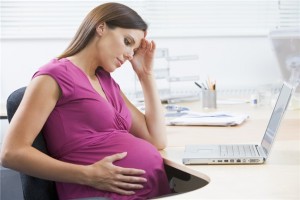 What is anaemia?
What is anaemia?Anaemia is a condition where the level of your haemoglobin in low. Anaemia is the most common medical disorder in pregnancy.1 According the a local survey, the overall incidence of anaemia in pregnancy in Malaysia is 34.5%. 2 World Health Organization (WHO) defines anaemia during pregnancy as haemoglobin level which is less than 11g% (the first and third trimester) and 10.5% in the second trimester.3 Haemoglobin is an important protein in your red blood cells which carries oxygen from your lungs to the other parts of your body.
How is the severity of anaemia categorised ?
World Health organization (WHO) categorises the severity of anaemia according to the level of haemoglobin(Hb):3
Mild Anaemia : 9.5 – 10.5 g% or g/dl
Moderate anaemia: 8.0 – 10.5 g%
Severe anaemia: 6.9 – 7.9 g%
Very severe anaemia: < 6.9 g%
What are the causes of anaemia during pregnancy?
There are several causes of anaemia during pregnancy including:
- Iron deficiency anaemia. This is the commonest cause of anaemia during pregnancy.
- Folate deficiency anaemia
- Haemoglobinopathies such as sickle cell disease and thalassaemia
- Vit B12 deficiency. This is relatively less common cause of anaemia in pregnancy.
How is the diagnosis of anaemia being made?
Anaemia could be diagnosed clinically based on symptoms of anaemia or usually incidentally during your routine antenatal blood screening test..
What are the symptoms of anaemia?
- Some women have no symptoms at all
- Fatigue
- Light-headedness or dizziness
- Palpitation i.e your heart beating at a rapid rate
- Fainting episodes
Do pregnant women require more iron?
Yes, they do as your body will need to make more blood to share with your growing baby. Therefore, more iron is required in order to make this extra blood during pregnancy. An additional 500 – 600mg of iron is required during pregnancy.4 Most doctors recommend their pregnant patients to take oral iron supplement that contains at least 30mg of iron each day.
Which women are at risk of developing anaemia during pregnancy?
- Pregnant women who are teenagers as they tend to have poor nutritional status.
- Women with poor spacing in between their pregnancies
- Women from poor socioeconomic background. This is usually due to their poor nutritional status.
- Being pregnant with twins, triplets or more
- Not eating enough iron-rich foods
- Had heavy periods or menses prior to getting pregnant
- Underlying medical conditions such as sickle cell or thalassaemia
What are the possible complications that could occur if I have anaemia during pregnancy?
- Increase risk of premature labour
- Low weight babies and increase risk of anaemia in your babies later.
- Increase risk of excessive bleeding at labour
- Increase risk of infection
- At risk of requiring blood transfusion especially if you bleed excessively at labour
- Increase risk of post partum partum depression
How could I prevent iron-deficiency anaemia?
Eating food rich in iron such as dark green leafy vegetables such as spinach and broccoli,lean red meat,dried fruit, tofu, raisins, whole grains, iron fortified cereals, pastas and nuts. In addition, you could supplement your diet with iron supplements especially if you are a vegetarian and not getting enough iron from you daily diet. You should eat the food rich in iron and your iron supplements with food which is rich in vitamin C such as strawberries or orange juice which helps your body absorbs iron better. Avoid taking your iron supplements with food such as milk, coffee, tea and even calcium supplements which reduces absorption of iron.
How is iron-deficiency anaemia treated during pregnancy?
This depends on the severity of the anaemia and how far along are you in pregnancy:
a) If your anaemia is mild you may be treated with oral iron supplement which is about 60 to 120mg or more of elemental (pure) iron daily. However, if you are taking an iron salt the amount of elemental iron differs between the salts:
325mg of ferrous sulfate yields about 60mg of elemental iron
300mg of ferrous gluconate yields about 34mg of elemental iron
325mg of ferrous fumarate contains about 106mg of elemental iron
b) If you could not tolerate the oral iron supplement or may be incompliant with it your doctor could prescribe you with iron given intravenously.
c) If you are severely anaemia and almost coming up to your delivery date, your doctor may actually give you blood transfusion.
What are the possible side effects of oral iron supplements?
There are some possible side effects such as heart burn, abdominal discomfort, nausea, constipation and less commonly diarrhea. Talk to your doctor regarding this if you suffer from the side effects. You may just need to adjust the time when you take the tablets to reduce the side effects. In addition, your stool may turn darker in colour when you are taking iron supplement. Do not worry if this happens.
RECOMMENDED BOOKS:
[easyazon-image align=”none” asin=”1561487171″ locale=”us” height=”160″ src=”http://ecx.images-amazon.com/images/I/41AyhH3XGkL._SL160_.jpg” width=”107″] [easyazon-image align=”none” asin=”B005Q64716″ locale=”us” height=”160″ src=”http://ecx.images-amazon.com/images/I/315T5X7M65L._SL160_.jpg” width=”120″] [easyazon-image align=”none” asin=”081186989X” locale=”us” height=”160″ src=”http://ecx.images-amazon.com/images/I/41RCywwuqaL._SL160_.jpg” width=”115″] [easyazon-image align=”none” asin=”0738213527″ locale=”us” height=”160″ src=”http://ecx.images-amazon.com/images/I/51G0lxClf4L._SL160_.jpg” width=”120″] [easyazon-image align=”none” asin=”0738214647″ locale=”us” height=”160″ src=”http://ecx.images-amazon.com/images/I/51GaKkZAwzL._SL160_.jpg” width=”107″]
REFERENCES:
1. Schwartz WJ, Thurnau GR. Iron deficiency anaemia in pregnancy. Clin Obstet Gynecol 1995; 38: 443-454.
2. The Management of Anaemia in pregnancy and Chronic Kidney Disease. Clinical Practice Guidelines. Academy of Medicine of Malaysia 2007: 11.
3. World Health Organization. Report of a WHO Group of Experts on Nutritional Anaemias. Technical report series no 503. Geneva: WHO, 1972.
4. Stoltfus R, Dreyfuss ML. Guidelines for the use of iron supplements to prevent and treat iron deficiency anaemia. Geneva: INAGG, WHO, UNICEF, 1998.
Filed under Medical Conditions in Pregnancy, Uncategorized | No Comments








